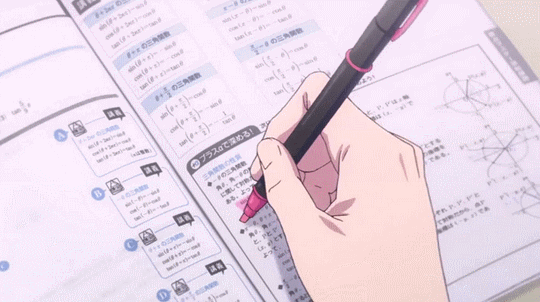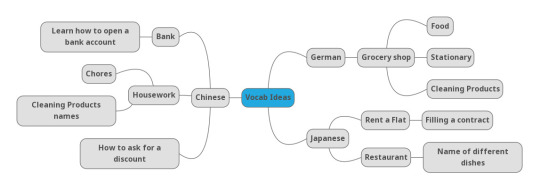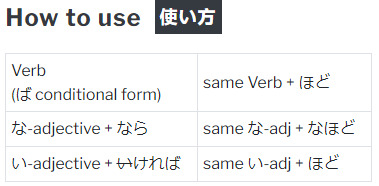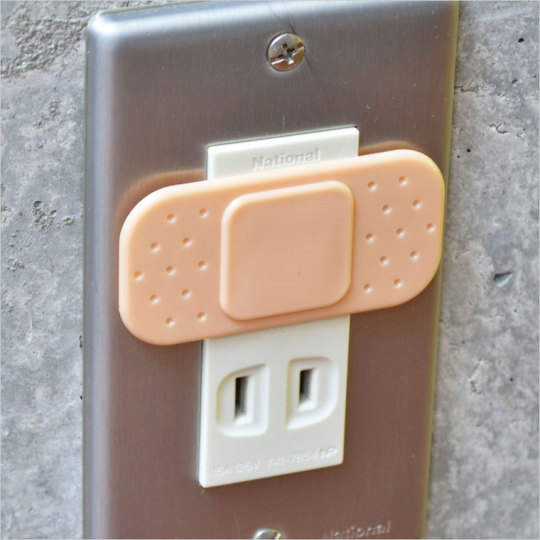Text
112922 | Week 1 Day 5 of Langblr Reactivation Challenge by @prepolyglot
Day 5: Find a video in your target language and watch it as many times as you need to in order to understand it. Make a post about the video. What was it about? Did you like the video? Was it difficult to understand? Make sure you link the video. Try to write your answers in your target language, but if you can’t that’s okay!
最近我真的沉迷于手账和日记。这个发生每末年了。我在12年开始用了手账. 真的最喜欢。然后我觉得看看手账的视频。
这个视频关于男人的23年手账体系。他在视频开始说他的过来手账。他开始用手账是19岁的。他用了很多体系。只是一个手账,两个(在工作和生活)。但是他却打算用3个本子,于工作,生活和。最后一本 ,他就买是因为价格。这个视频没有很多信息,但是我更喜欢这样的视频,少谈话。我不觉得这个视频很难,不过有些词我不知道。
Sorry guys, Im on the end of semester and i don`t have time to post here
#chinese langblr#language learning#studyblr#learning mandarin#langblr reactivation challenge#polyglot#langblr challenge#studyspo
7 notes
·
View notes
Text
112322 | Week 1 Day 4 of Langblr Reactivation Challenge by @prepolyglot


Day 4: Create a vocab list for one of the topics you created yesterday, if you want to make more, feel free to make as many as you like! Share your list and reblog other people’s lists. And most importantly, make sure you study these words!
Chinese/Japanese/German/English
蔬菜 - shū cài / 野菜 - やさい / Gemüse / Vegetables
西红柿 - Xīhóngshì / トマト / Tomate / Tomato
洋葱- Yángcōng / タマネギ /Zwiebel / Onion
姜 - Jiāng / ショウガ / Ingwer / Ginger
土豆 - Tǔdòu / じゃがいも / Kartoffel / Potato
蘑菇 - Mógu /キノコ / Pilz / Mushroom
黄瓜 - Huángguā /キュウリ / Gurke / Cucumber
蒜 - Suàn /ニンニク / Knoblauch / Garlic
肉 - Ròu / 肉 - にく/ Fleisch / Meats
猪肉 - Zhū ròu / 豚肉 - ぶたにく/ Schweinefleisch / Pork
牛肉 -Niú ròu / 牛肉- ぎゅうにく / Rindfleisch / Beef
鱼 -Yú /魚- さかな / Fische / Fish
鸡肉 - Jī ròu /鶏肉 - ときにく/ Huhn / Chicken
香肠 - Xiāngcháng /ソーセージ / Würstchen / Sausage
虾 - Xiā / エビ / Garnele / Shrimp
蟹 - Xiè / カニ / Krabbe /
水果 - Shuǐguǒ /果物 - くだもの / Obst / Fruits
苹果 - Píngguǒ / リンゴ / Apfel / Apple
橙 - Chéng / オレンジ/ die Orange / Orange
梨 - Lí / 梨 - なし / die Birne / Pear
西瓜 - Xīguā / スイカ / die Wassermelone / Watermelon
柠檬 - Níngméng / レモン / die Zitrone /Lemon
葡萄 - Pútáo / 葡萄 - ぶどう/ die Trauben Grapes
日用品 - rì yònɡ pǐn / 日用品 にちようひん / Die täglichen Erfordernisse / Daily Necessities
香皂 - xiānɡ zào / 石鹸 - せっけん / die Seife / Soap
毛巾 - máo jīn / タオル / das Handtuch * Towel
洗洁精 - / 食器用洗剤 しょっきようせんざい / Geschirrspülmittel / Dish washing liquid
卫生纸 - wèi shēnɡ zhǐ /トイレットペーパー / Toilettenpapier / Toilet paper
牙刷 - Yáshuā / 歯ブラシ / Thootbrush
#german#german vocabulary#langblr reactivation challenge#langblr challenge#langblr#japanese langblr#日本語の勉強#language learning#日本語勉強#日本語#polyglot#language#studyblr
77 notes
·
View notes
Text
112222 | Week 1 Day 3 of Langblr Reactivation Challenge by @prepolyglot

Day 3: Create a list or a Mindmap of vocabulary topics. Start with a broad topic and narrow down to more specific topics. An example could be bedroom - furniture - closet - clothes or travelling - languages - study words - school supplies. Keep a hold of this because you’ll use it later to create vocab to study. Some broad topics to start with: house, school, work, travelling, friends and family, nature, city. Feel free to use these or think of your own.
I forgot to do it yesterday, so today we have two posts. I`m not good at mindmaps, but I tried.

#studyblr#langblr#languages#study motivation#studyspo#studying#polyglot#self studying#日本語#german langblr#chinese langblr#japanese langblr#langblr reactivation challenge
3 notes
·
View notes
Text
112222 | Week 1 Day 2 of Langblr Reactivation Challenge by @prepolyglot


Day 2: Write a list of goals you have for your target languages. Make both long term and short term goals. An overall goal could be to have the ability to talk with native speakers with ease and a smaller goal would be to finally learn that difficult grammar point that’s been plaguing you for ages. How will you achieve them?
長句的な目的:
能力試験N3を合格したい、
発音と手書きを進みます、
好きなことについて話せます
天気的な目的:
能力試験N3が大切な文法を勉強します、
もっと論文を書きます、
シャードニンを練習します、

长期目标:
学习HSK4,
练习口语,
能用中文看最喜欢的小说,
去中国留学。
短期目标:
一直学习HSK4的主题,
说很多中语,
开始看分级小说,
练习更多非常的对话

For German I only have ~go back to study~, but ill review everything from the beginning. I need to expand my vocabulary, but itill only happen within the things that I said before.
#langblr reactivation challenge#langblr#learning mandarin#japanese learning#japanese langblr#language learning#studybrl
3 notes
·
View notes
Text
微信 WeChat
(I'm finally past the food levels, now we're learning how to pay the bill using WeChat!)
微信 / wēi xìn / WeChat (literally: small + text/info)
转(轉)/ zhuǎn / to transfer or turn
转发(轉發)/ zhuǎn fā / to forward (an email)
微软(-軟)/ wēi ruǎn / Microsoft company (literally: small + soft)
兴趣群(興--)/ xìng qù qún / interest group (chat)
功能 / gōng néng / function (e.g. app functions)
平台(-臺)/ píng tái / platform (e.g. social media)
Examples 例子:
我们一会儿用微信把钱转给你。In a bit, we'll use WeChat to send you money.
钱转好了吗?Did the money transfer?
你可不可以把这个信息转发给我?Could you froward this information to me?
微信功能超级多。WeChat has a ton of functions.
你可以加入兴趣群,群里聊天。You can join interest groups and group chats.
129 notes
·
View notes
Text
Translation request for Anon. English added by me :)
#I really enjoy to see people using sign language#i hope to improve my knowledge of my own country's sign language#they are hella cute#recognizing tones through vibration wow
639 notes
·
View notes
Text
112022 | Day 1 of Langblr Reactivation Challenge by @prepolyglot


Day 1: Create an introduction post about yourself. What's your name? What languages are you studying? What languages do you hope to study? What do you hope you'll get out of this challenge? Add whatever else you’d like to your introduction post!

ハローみんな。俺はコルビだ。今のところ日本語、中国語とドイツ語を勉強してる。言語を勉強するのが大好きだよ。めちゃ言語を勉強した、そんなベトナム語、フランス語、スパイン語、スウェーデン語。めちゃ言語だあああ!!!でも、日本語、中国語とドイツ語は本当に言語しか勉強してない。
後々スウェーデン語とベトナム語の勉強に戻すつもりだ。将来の言語を勉強するために、俺もノルド語を加えりたいだ。
このチャレンジついてに対して、来年N3とhsk4を受けるつもりのように、めちゃモチベが欲しくてもらうように。
このaccは日本語のみに焦点を当ててるのだって、他の言語を使おうと思ってる。特に俺のマイン言語。

大家好~ 我叫KORVY。现在我学习日语,中文和德文。学言语是我的最好的爱好。虽然很多言语被我学了,比如,越南语,法语,瑞典语一样,但是现在我的主要言语是日语,中文和德文。
在将来,我打算回学习瑞典语。也想加很多北欧语。因为来年我打算考JLPTN3和HSK4,所以希望这个挑战给我很大动力。
这个ACC仅适用日语,但是打算开始用其他言语。我真的为这个挑战开始吧!

Hallo Menschen. Ich bin Korvy. Ich habe vergessen hier ein deutsch Version gestellt, aber das ist jetzt hier. Meine Deutsch ist sehr basik, weil ich A1 Niveau habe. In der Tat, Ich habe nicht, bis nächstes Jahr Deutsch lernen. Doch, ich planen, nächster Jahr sehr hart Deutsch zu lernen . Das ist alles für jetzt

Hello humans. Well, my name is Korvy and I'm an afficionated for languages. I have studied so many languages, such as Vietnamese, French, Spanish, Swedish and so on. But now I'm only studying Japanese, Chinese and German.
In the future, I'm planning to go back to Swedish and also add more Scandinavian languages to my list, like Norwegian and Finnish. I also want to try Russian and Mongolian. But for now, I have to focus on my main languages and how to get out of the intermediate limbo.
I'll take JLPTN3 and HSK4 next year, so I hope this challenge will be a boost of confidence and motivation for my study routine.
I think for the first day it's enough. bye~


#japanese langblr#langblr#language learning#chinese langblr#german langblr#studybrl#langblr reactivation challenge#i feel stucked in the intermediate limbo and i cant get out of it#polyglot
4 notes
·
View notes
Text
Langblr Reactivation Challenge
Hello everyone! As you may know I've created this challenge to help revive the langblr community. It's a three week challenge designed to get you back into learning languages and (hopefully) give you ideas on how to study and share your knowledge of them. It is completely optional to do, but try to reblog other people's posts if you aren't participating.
The challenge is designed to be done daily, however if you miss a day, you can go back and do it later or continue from where you left off. I do encourage you to do your best to keep up with the challenge though. Tag your posts with #langblr reactivation challenge so that others can find your posts.
If you have any questions, please send me an ask or a message and I'll do my best to answer it.
I'll put the prompts under a read more so this post isn't ridiculously long. Good luck to everyone participating! Remember the best way to promote the langblr revival is by reblogging other people's work.
Week 1
Day 1: Create an introduction post about yourself. What's your name? What languages are you studying? What languages do you hope to study? What do you hope you'll get out of this challenge? Add whatever else you’d like to your introduction post!
Day 2: Write a list of goals you have for your target languages. Make both long term and short term goals. An overall goal could be to have the ability to talk with native speakers with ease and a smaller goal would be to finally learn that difficult grammar point that's been plaguing you for ages. How will you achieve them?
Day 3: Create a list or a Mindmap of vocabulary topics. Start with a broad topic and narrow down to more specific topics. An example could be bedroom - furniture - closet - clothes or travelling - languages - study words - school supplies. Keep a hold of this because you'll use it later to create vocab to study. Some broad topics to start with: house, school, work, travelling, friends and family, nature, city. Feel free to use these or think of your own. Share your mindmap so others can get some ideas if they need it. Here are some mind map creation tools (x) (x) (x).
Day 4: Create a vocab list for one of the topics you created yesterday, if you want to make more, feel free to make as many as you like! Share your list and reblog other people's lists. And most importantly, make sure you study these words!
Day 5: Find a video in your target language and watch it as many times as you need to in order to understand it. Make a post about the video. What was it about? Did you like the video? Was it difficult to understand? Make sure you link the video. Try to write your answers in your target language, but if you can’t that’s okay!
Day 6: Look up 3 idioms in your target language and explain what they mean and how you use them in a sentence (with an example!).
Day 7: Send asks to other langblrs (bonus points if it's in a shared target language!) asking them about whatever (for example, ask how their day was, ask questions about their target languages, or share some of your thoughts with them). If you receive one, answer it! You can ask more than one person and it can be on or off anon.
Week 2
Day 1: Over the next week, create a playlist/playlists of songs in your target language(s), they can either have a specific mood or genre or they can be a collection of songs you've discovered. When you feel like you're done with your playlist, share it so others can find some new songs. If you already have a playlist, you can add songs to it and update it.
Day 2: Write an explanation on a grammar rule in your target language (such as verb tenses, exceptions, word order, etc). Include sentences to show how and when it is used.
Day 3: Either make a vocab list or find a vocab list you like and make sentences using those words. You can make them as long or as short as you like. This is a good way to contextualise vocab words and learn them in context. Share your sentences and highlight the vocab word.
Day 4: Record yourself reading an article, short story, or passage (basically anything written in your target language). Listen to it and see if you can point out any areas you can improve with your speaking and any areas that you're doing well. You can post your recording if you wish.
Day 5: Post at least 2 songs that you like in your target language. Make sure you add a link to them so people can go listen to them.
Day 6: Share a study tip you have. This can range from how you organize your notes to playlists that help you study to apps you use to review. Just something that you find makes studying easier (and more fun).
Day 7: Share with everyone some langblrs you enjoy seeing on your dash, try to put at least 5 people (and make sure you @ them!).
Week 3
Day 1: Remember that playlist you made/are making? Take a song you really like and make a vocab list of words you don't understand, learned from the song, or recognize but don't quite remember. Post so others can see and link the song. If you have extra time and/or want a bit more of a challenge, translate the song as well, either into English or another language.
Day 2: Write about a festival or holiday that is celebrated in a country that speaks your target language. This can be either something you’ve celebrated yourself, have wanted to participate in, or have never heard of before. You can write this in any language you’d like.
Day 3: Make another vocab list from the list you made at the beginning of the challenge. If you are learning two or more languages, make the vocab list in 3 languages (meaning for example: French, German, and English or Japanese, Arabic, and Ukrainian).
Day 4: Find a recipe written in your target language and translate it into your native language (or another language of your choice) or find a recipe in your native language and translate it into your target language. Bonus points if you actually make it (share pictures if you do)!
Day 5: Create a collection of resources you use to study/learn your target language. Add links to them if possible so others can also use them.
Day 6: Create a post explaining a grammar rule that you had/are having difficulties learning. If you’re currently having difficulties, do your best to explain and ask others to help you understand it better. Include example sentences in your explanation.
Day 7: How do you feel at the end of this challenge? Did you meet any goals while doing this? Do you feel more confident in your language abilities? Where do you think you'll go from here? Answer these questions either in your native language or your target language.
Hopefully you guys enjoy/enjoyed this challenge. After you've completed the challenge, I encourage you to continue your studies in your target languages and support others in theirs.
736 notes
·
View notes
Text
尊敬語 - Honorific Keigo
敬語 (けいご・keigo) is respectful speech in Japanese. 敬語 is based in the social hierarchy that has carried over into modern Japanese society from ancient times. There are three forms of 敬語 - teineigo, sonkeigo, and kenjougo.
尊敬語 (そんけいご・sonkeigo) is honorific Japanese. This style is used to show respect to someone of a higher position (a superior, an elder, a customer, etc.) when speaking about them. You must never use this form to refer to yourself. This form is characterized by lengthy polite sentences and common verbs are exchanged for more polite ones or changed into a respectful form.
Regular Sonkeigo Verb Forms
To create the honorific form of most verbs, add the prefix お to the stem form of the verb and add になる to the end.
Polite Form → Honorific Form
Verb-stem + ます → お + Verb-stem + になります
読みます → お読みになります (およみになります) to read
待ちます → お待ちになります (おまちになります) to wait
教えます → お教えになります (おおしえになります) to teach
書きます → お書きになります (おかきになります) to write
思います → お思いになります (おおもいになります) to think
Irregular Sonkeigo Verb Forms
Plain Form → Honorific Form
行く (いく)・来る (くる) → いらっしゃいます/おいでになります to go/to come
いる → いらっしゃいます/おいでになります to be
食べる (たべる)・飲む (のむ) → 召し上がります (めしあがります) to eat/to drink
寝る (ねる) → お休みになります (おやすみになります) to sleep
言う (いう) → 仰る (おっしゃいます) to say
見る (みる) → ご覧になります (ごらんになります) to see
着る (きる) → お召しになります (おめしになります) to wear
する → なさいます to do
知っている (しっている) → ご存知です (ごぞんじです) to know
くれる → くださいます to receive
座る (すわる) → お掛けになります (おかけになります) to sit/to be seated
Other Honorific Forms
です → でいらっしゃる copula
家 (いえ) → 御宅 (おたく) home
どう → いかが how
Example Sentences
Excuse me, is Professor Tanaka here? Normal: すみません、田中先生はいますか。 尊敬語: すみません、田中先生はいらっしゃいますか。
How was the interview? Normal: 面接はどうでしたか。 尊敬語: 面接はいかがでしたか。
How are you? Normal: 元気ですか。 尊敬語: お元気ですか。
See also: Basic Keigo, Polite Keigo
144 notes
·
View notes
Text
漢字検定
漢字検定を勉強して始めました。8級に定めて始めましたから、その級は私の知識に会わそうとおもってた。でも、8級はめちゃ簡単と思っています。復習にいいと思うだけど新しい漢字は習いたいです。
1 note
·
View note
Text
ば、ほど
ば is somewhat like と where it is used in sentence formats to say "if XXX, then YYY will happen".
The different ways to conjugate to use ば are too complicated to summarise in a table, but JLPT-sensei's website here really made it easy for me to comprehend!
There are 4 major types of conditionals: ば、と、たら、なら. This website by wasabi-jpn was really clear! Do check it out. Basically, I understood that:
たら is the most versatile form, most suitable for one-time-off situations. E.g. I think I will cry if I pass the exam. 試験に受かったら泣くと思う。
と is for factual and habitual situations. E.g. When spring comes, the cherry blossoms will bloom. 春になると、桜が咲きます。
ば is for hypothetical situations. E.g. If I have money, I can travel anytime and anywhere. お金があれば、いつでもどこへでも旅行に行けます。
なら is for contextual situations. E.g. If you're going shopping, please buy eggs for me. 買い物なら卵を買ってきてください。
_____
As for ば、ほど, it means "the more XXX, the more YYY", e.g. the more I listen to music, the more I like it/ the more I study, the better I get.
There are different formats to the sentence structure, as succinctly tabled here by JLPT-sensei:

There's ば → ほど, なら → なほど, ければ → ほど。
The verb (in the right column) should be in its dictionary form.
2 notes
·
View notes
Text
今年違うトピックと思いました。来年卒業します、それから、仕事を探して始めます。修士号も受けろを思っています。でも、この都市は専攻がありません、そして、別の都市に引っ越すべきです。この意味は別の料金。
来年もJLPTN3とHSK4を受けるつもです。だから、毎日勉強しています。勉強方法をしてみるのは、記事はNHKのやさしい日本語より訳してみます。少なくとも週に一度。中国語の本やファンフィクションを読みます。まだプロンプトを日本語と中国語で書きます。
違う勉強方法と思いますとき、このポスターをうpしてみます。ここは. じゃあ~
0 notes
Text
痩せるのつもりです
最近痩せるの思ってる。それから今痩せてできないが健康に悪い、でも痩せたい、7kgだけ痩せて。今健康がよわなって分かるがこれは止めるのは思わない。

0 notes








